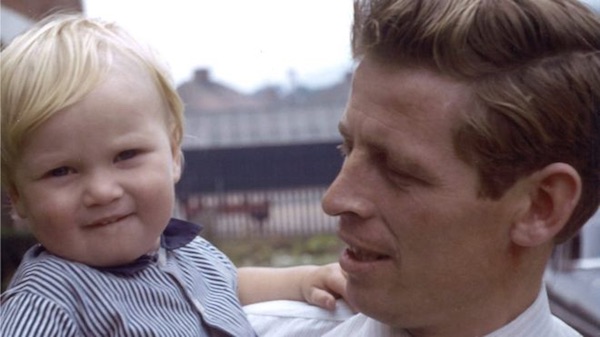
A witness to one of the killings of the 1971 Ballymurphy massacre, who has suffered from post-traumatic stress disorder since, has given his first-ever statement on the atrocity to the coroner of the current inquest.
Ten people were shot dead by British soldiers over a period of 36 hours as they sought to take control of a west Belfast community following the introduction of internment without trial.
James McCabe, now aged 67, who lived near the massacre at the time, was the first live witness to the inquest. He said he had seen Edward Doherty (pictured), a father of four, shot dead close to a barricade that the British Army had been trying to remove.
Mr McCabe said: “I made a conscious decision not to get involved before because I didn’t think the truth wouldn’t come out.”
Recent newspaper articles about the deaths and the absence of a truth commission had encouraged him to change his mind, he said. He noted that a soldier involved, known as ‘M3’ or ‘Soldier B’, had changed his version of events.
He told the court that, from a distance of about 30ft (9m), he could see a soldier in a blue or black beret driving a digger and trying in vain to clear the barricade.
He said the soldier then opened the door of the cab and sprayed the crowd opposite with an automatic weapon in his left hand, without shouting a warning and while still standing on the vehicle.
He thought the soldier might have fired a full magazine.
Although most people dropped to the ground, he could see that Edward Doherty was not moving and had been hit in the back.
He also said that he saw no weapons or petrol bombs among the crowd at whom the soldier had fired. He told the court that after the soldier had left he and some other people started to lift Mr Doherty away - Mr McCabe saw “a pool of blood with air bubbles in it”.
He said the atmosphere in Ballymurphy in those days had been very tense. “The area was terrified, under siege and people were fearful for their lives,” he told the court. “Living under the mountain, the gunfire reflects and you could hear the gunfire and the mayhem.”
Mr McCabe said he was traumatised after Edward Doherty was shot and didn’t return to his own home for two days for fear that the British Army would come for him.
“I still have flashbacks,” he said. “The Troubles don’t leave me.” He revealed to the court that he is still undergoing treatment for PTSD and “this is the last thing that I wanted to be reminded about”.
The former soldier ‘M3’ denied he embellished his account of how he came to shoot Mr Doherty.
M3 told the inquest that he fired “a single shot” at a man who he claimed had thrown two petrol bombs at him and had been preparing to throw a third.
He has also claimed that he saw a man with a gun in the area, and fired a “burst of four shots” in his direction.
The inquest previously heard M3 say it was possible the shot he fired had not hit the intended target but another bystander instead. “It could be,” M3 told the inquest.
Counsel for the Doherty family, Fiona Doherty QC put it to M3 that he has varied his evidence to justify opening fire, pointing to inconsistencies between a number of statements he has made over the years.
“I am going to suggest to you that you are aware the more aggressive and belligerent this person seems to be from your account, the more support there will be for your decision to open fire,” she said.
The live testimony came after statements made by a number of witnesses who are now deceased were read out.
Earlier in the week, the court heard that in a statement originally made in 1972, the now deceased Desmond Crone heard the wounded cry out as they were hit.
Mr Crone was present when several people, including his wife’s cousin, Joseph Murphy, were shot in front of him as they stood opposite a British Army base on August 9.
Mr Crone described how he lay in a field for more than an hour to prevent being shot. He recalled the British Army arriving in a military vehicle and removing the injured people.
Mr Crone added he heard a soldier say “kill the b******s” before throwing the wounded into the back of their vehicle like “animals”.
The inquest continues next week.
![[Irish Republican News]](https://republican-news.org/graphics/title_gifs/rn.gif)
![[Irish Republican News]](https://republican-news.org/graphics/title_gifs/harp.gif)

